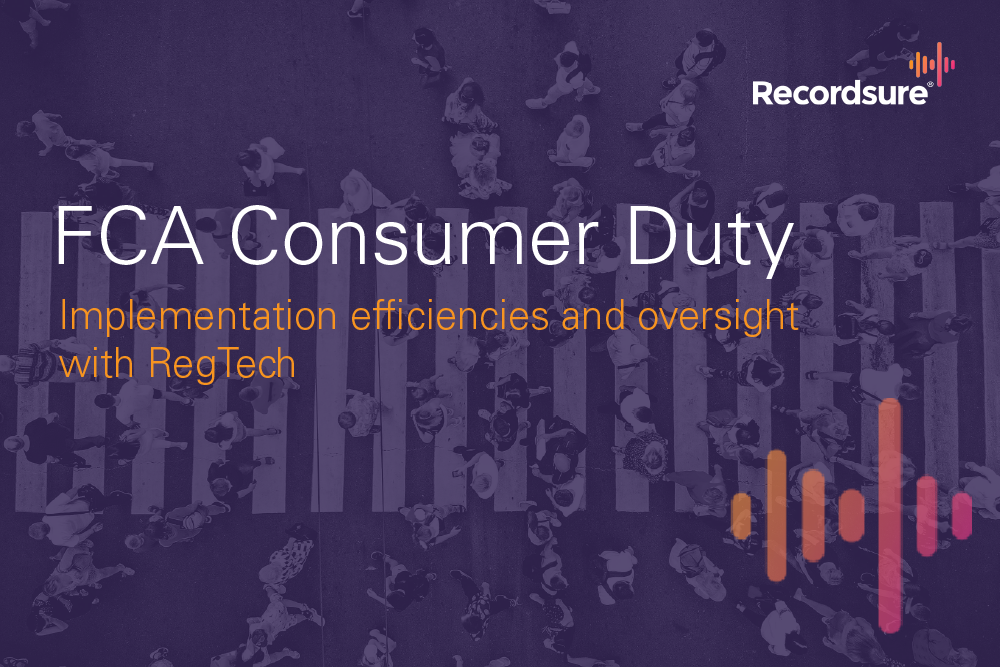First formally proposed in May 2021, the Consumer Duty, as published on 27 July 2022, effectively supersedes the previous Treating Customers Fairly (TCF) framework with a more dynamic and proactive approach to regulation – described by the FCA as ‘assertive supervision’.
Our rules require firms to consider the needs, characteristics and objectives of their customers – including those with characteristics of vulnerability – and how they behave, at every stage of the customer journey. As well as acting to deliver good customer outcomes, firms will need to understand and evidence whether those outcomes are being met.
FCA
The newly introduced rules and outcomes focus on four key areas: products and services, price and value, customer understanding, and customer support – bringing customers to the forefront of everything financial services firms do.
So what are the new rules?
- A new Consumer Principle that requires firms to act to deliver good outcomes for retail customers.
- Cross-cutting rules provide greater clarity on FCA’s expectations under the new Principle and help firms interpret the four outcomes.
- The Consumer Duty Rules relating to the four outcomes represent critical elements of the firm-consumer relationship, which are instrumental in helping to drive good outcomes for customers.
The Consumer Duty is the most transformative regulatory shift we've seen from the regulator over the past decade – and the focus on better customer treatment will be welcomed by the consumer.
Joe Norburn, CEO at Recordsure and TCC
FCA’s clarity on their expectations and firms’ focus on customers’ needs is expected to pay the way to more flexibility for firms to compete and innovate in the interests of consumers.
FCA introduces challenging deadlines
- 31 October 2022: Boards (or an equivalent management body) are required to have an implementation plan
- 31 July 2023: new Consumer Duty rules come into force for new and existing products or services open to sales or renewals
- 31 July 2024: rules come to force for closed products and services
With the challenging deadlines, the financial industry has been put under pressure to deliver the implementation plans this October and follow through to the Consumer Duty implementation deadline of July 2022.
David Boyhan, Technical Director at TCC
As previously promoted, FCA is keen for firms to implement the new regulations as quickly as possible, and the rules will come to force at the end of July 2023 – a year away.
Yet a new deadline of 31 October 2022, announced today, is already looming with firms being required to have implementation plans in place – so as of this morning, the development of a compliance framework that’s fit for purpose has immediately become the top priority for business leaders.
The good news for firms is that consultancy specialists, such TCC, are already geared up to help them achieve the challenging deadlines of the implementation planning, oversight and delivery.
David Boyhan, Technical Director at TCC
A quick Consumer Duty recap
Setting the bar for consumer care higher than the existing Principle 6 and 7 of the FCA handbook, an overarching Consumer Principle underpins the legislation: ‘A firm must act to deliver good outcomes for retail customers.’
The Duty – as stated by FCA – will include requirements for firms to:
- end unfair charges and fees
- make it as easy to switch or cancel products as it was to take them out in the first place
- provide helpful and accessible customer support, not making people wait so long for an answer that they give up
- provide timely and clear information that people can understand about products and services so consumers can make good financial decisions, rather than burying key information in lengthy terms and conditions that few are inclined to read
- provide timely and clear information that people can understand about products and services so consumers can make good financial decisions, rather than burying key information in lengthy terms and conditions that few are inclined to read
- provide products and services that are right for their customers
- focus on the real and diverse needs of their customers, including those in vulnerable circumstances, at every stage and in each interaction
The final component of the Consumer Duty comprises four outcomes that firms must consistently strive to deliver:
- Consumer Understanding: Understandable, easy-to-follow communications that genuinely help customers make informed decisions
- Products and Services: User-friendly products and services that are designed to meet customers’ needs and offer fair value, taking behavioural biases into account
- Consumer Support: Offering support to the customer needs when they need it with Customer Service that works for all customers across all mediums and platforms, taking into account vulnerability
- Price and Value: Fairly priced products and services that deliver true value to customers
Now's the time for action
Whether your firm began planning at first notice or elected to await further instruction before embarking on such a major strategy realignment, with the final rules upon us, there’s no more time to wait: implementation planning starts now.
Your first port of call should be to map out how the Consumer Duty’s aims and conduct requirements will make sense with your own products and services. At the same time, it’s critical to begin preparing for the switch to a more outcomes-focused model of supervision – including assessing how your current outcomes testing and complaints handling processes can be retooled to fit the Cross-Cutting Rules and Four Outcomes.
And beyond that, the sheer scope of the new legislation means your entire product lifecycle will likely need an honest review. This means asking some fundamental questions, such as:
- How do you demonstrate that your products are truly designed to meet customers’ needs?
- Can you be sure they offer value for money?
- How do your communications help customers – for instance, is your website user-friendly, and are there multiple channels of communication on offer?
- Could you be doing more to support consumers to realise their financial goals?
Futureproof your Consumer Duty compliance with RegTech
Whatever stage of planning you’re currently working on, it’s clear that ensuring a smooth transition will require considerable time, attention and resource from even the most well-prepared team.
We work with TCC’s subject matter experts who can provide you with an impartial, detailed health check of your approach to root out any inefficiencies or blind spots that prevent you from operating a well-oiled machine from day one – whilst ensuring your processes are flexible and robust enough to adapt to future regulatory directives. What’s more, they are well versed in implementation planning, delivery and oversight, providing you with a springboard for the successful delivery of the Consumer Duty.
What is more, RegTech is set to play a critical role in helping firms to ensure Consumer Duty’s compliance implementation. With invaluable tools like Recordsure ConversationReviewAI and CaseReviewAI that monitor and review customer interactions and provide firms with actionable insights, you can be sure to introduce greater oversight for all customer-firm conversations and introduce vital audit trails, thus setting you up for a compliant future.






